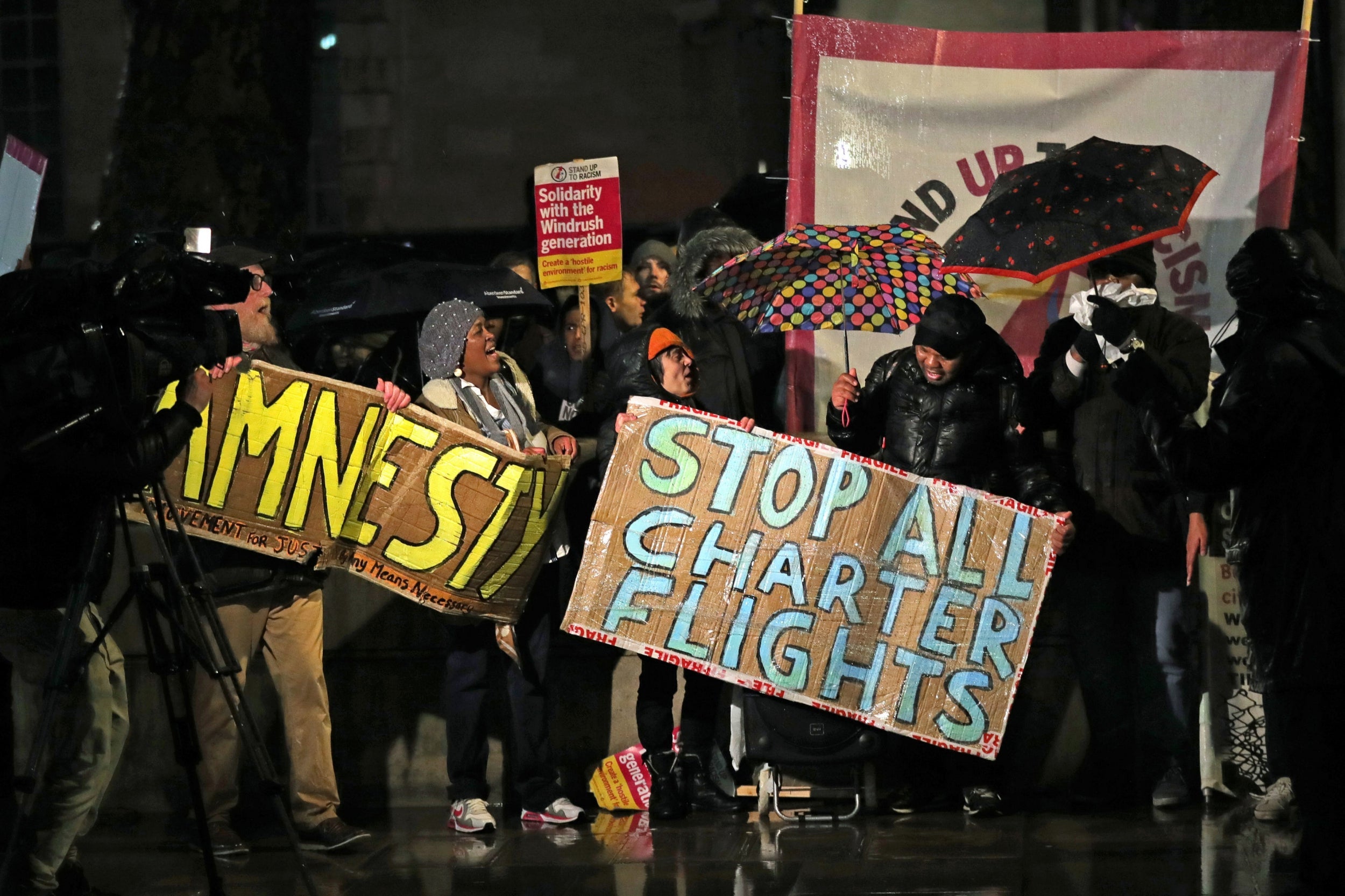Why last minute legal challenges to deportations are not ‘tactical’ – despite claims from the Home Office
The immigration minister’s claim that lawyers used ‘last minute tactics’ to get deportees off a charter flight to Jamaica fails to address the real problem, writes May Bulman


Your support helps us to tell the story
From reproductive rights to climate change to Big Tech, The Independent is on the ground when the story is developing. Whether it's investigating the financials of Elon Musk's pro-Trump PAC or producing our latest documentary, 'The A Word', which shines a light on the American women fighting for reproductive rights, we know how important it is to parse out the facts from the messaging.
At such a critical moment in US history, we need reporters on the ground. Your donation allows us to keep sending journalists to speak to both sides of the story.
The Independent is trusted by Americans across the entire political spectrum. And unlike many other quality news outlets, we choose not to lock Americans out of our reporting and analysis with paywalls. We believe quality journalism should be available to everyone, paid for by those who can afford it.
Your support makes all the difference.When more than a dozen Jamaican nationals were taken off a charter flight hours before they were due to be deported in the early hours of Wednesday, immigration minister Chris Philp accused the lawyers who intervened in their cases of using “last minute tactics”. He was repeating a claim that has been made by his senior, Priti Patel, in recent months that “activist lawyers” intentionally wait until the eleventh hour to seek to “delay and disrupt” returns of people without valid cases.
The reality is quite different. People The Independent have spoken to who were taken off the flight – all of whom committed non-violent offences – had either struggled to access good legal advice or had difficulty communicating with their lawyers in the two or three weeks they had between being served deportation notice and the flight taking off.
Their loved ones had been working tirelessly to work with lawyers and gather evidence to show why they should remain in the UK, often relating to their close bond with the British children they live with – but this work isn’t easy.
The immigration lawyers themselves are quick to make clear that intervening in cases where someone has a strong legal case to remain in the UK – and where removal from the country risks breaching their human rights – is not activism but simply part of their duty to uphold the rule of law.
The reason the claims are often made in the eleventh hour, they say, is due to difficulty for clients to access good and affordable legal representation, largely because of cuts to legal aid, which has been all but eroded over the past six years. Barriers to communicating with lawyers from inside the detention estate, due to poor phone signal and limited access to the internet, have also been flagged as a problem.
That said, while the lack of access to legal advice is a major factor, it is secondary. The large number of last-minute legal claims also point to issues with the wider deportation system.
If an independent judiciary is repeatedly falling on the side of the ex-offender the Home Office wants to remove from the country, it raises concerns about the department’s policy of automatically seeking to deport any non-British resident of the UK who is served a prison sentence of 12 months or more.
No one is trying to condone the criminal acts of those the Home Office seeks to forcibly remove, but where they have strong claims based on family life in the UK or have other legal bases on which they should stay, isn’t it up to an independent judge to decide? And if these claims are being made at the last minute, perhaps that points to a dearth of access to legal advice and wider problems with the system, rather than a “tactic”.

Join our commenting forum
Join thought-provoking conversations, follow other Independent readers and see their replies
Comments